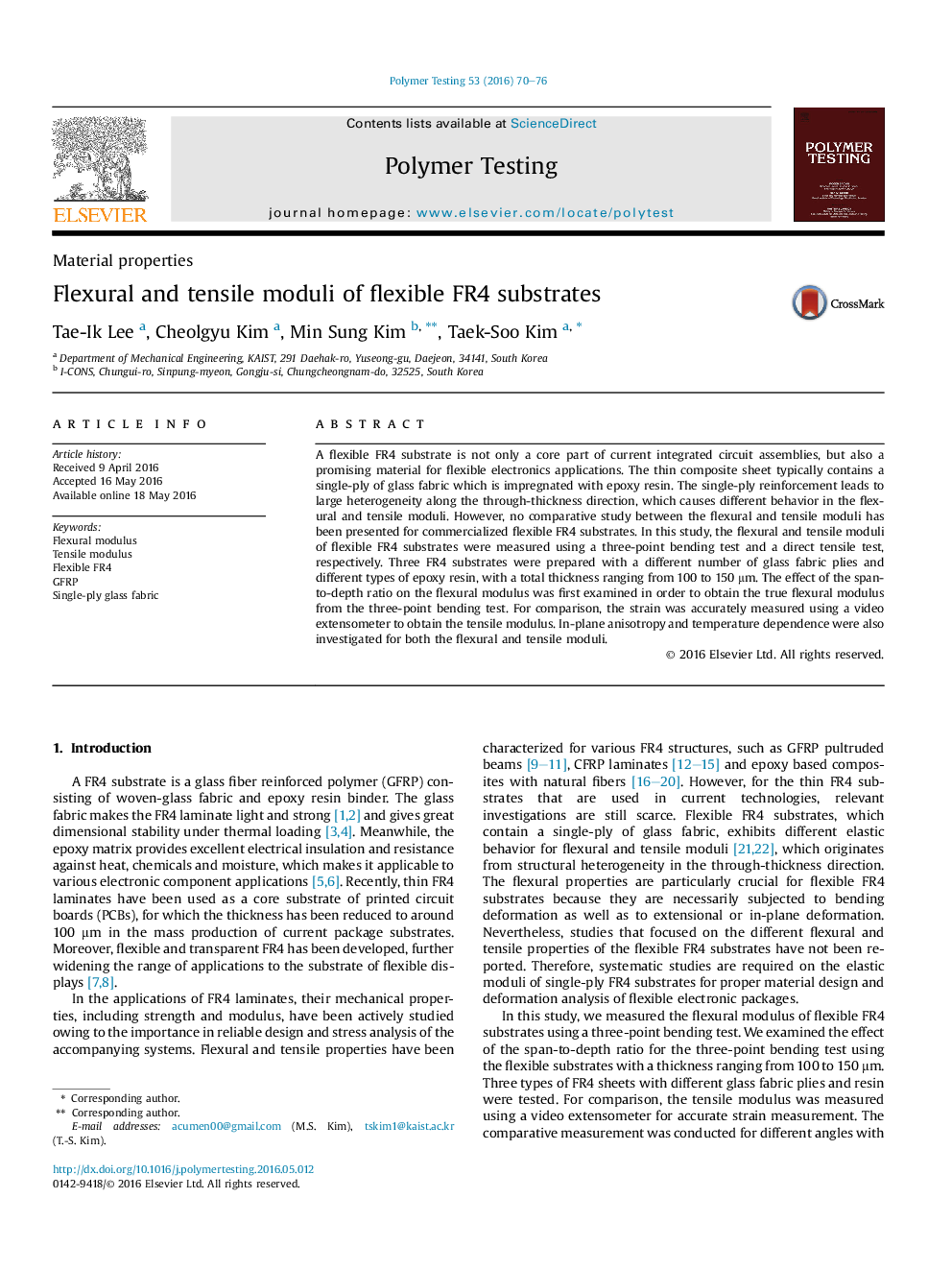| Article ID | Journal | Published Year | Pages | File Type |
|---|---|---|---|---|
| 5205711 | Polymer Testing | 2016 | 7 Pages |
Abstract
A flexible FR4 substrate is not only a core part of current integrated circuit assemblies, but also a promising material for flexible electronics applications. The thin composite sheet typically contains a single-ply of glass fabric which is impregnated with epoxy resin. The single-ply reinforcement leads to large heterogeneity along the through-thickness direction, which causes different behavior in the flexural and tensile moduli. However, no comparative study between the flexural and tensile moduli has been presented for commercialized flexible FR4 substrates. In this study, the flexural and tensile moduli of flexible FR4 substrates were measured using a three-point bending test and a direct tensile test, respectively. Three FR4 substrates were prepared with a different number of glass fabric plies and different types of epoxy resin, with a total thickness ranging from 100 to 150 μm. The effect of the span-to-depth ratio on the flexural modulus was first examined in order to obtain the true flexural modulus from the three-point bending test. For comparison, the strain was accurately measured using a video extensometer to obtain the tensile modulus. In-plane anisotropy and temperature dependence were also investigated for both the flexural and tensile moduli.
Keywords
Related Topics
Physical Sciences and Engineering
Chemistry
Organic Chemistry
Authors
Tae-Ik Lee, Cheolgyu Kim, Min Sung Kim, Taek-Soo Kim,
